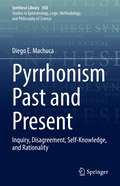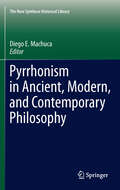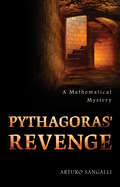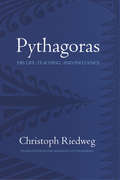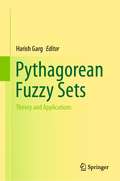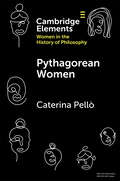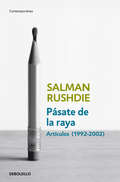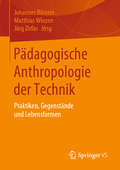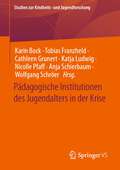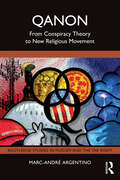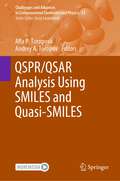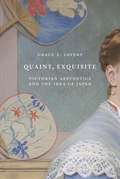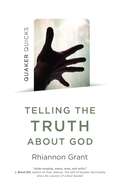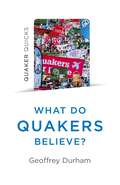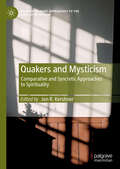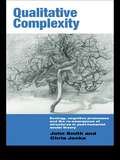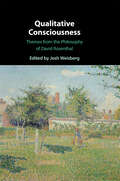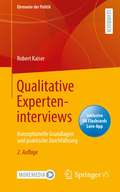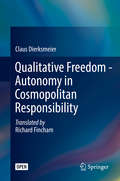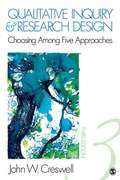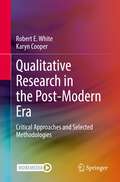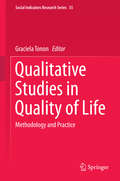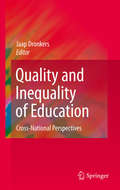- Table View
- List View
Pyrrhonism Past and Present: Inquiry, Disagreement, Self-Knowledge, and Rationality (Synthese Library #450)
by Diego E. MachucaThis book explores the nature and significance of Pyrrhonism, the most prominent and influential form of skepticism in Western philosophy. Not only did Pyrrhonism play an important part in the philosophical scene of the Hellenistic and Imperial age, but it also had a tremendous impact on Renaissance and modern philosophy and continues to be a topic of lively discussion among both scholars of ancient philosophy and epistemologists. The focus and inspiration of the book is the brand of Pyrrhonism expounded in the extant works of Sextus Empiricus. Its aim is twofold: to offer a critical interpretation of some of the central aspects of Sextus’s skeptical outlook and to examine certain debates in contemporary philosophy from a neo-Pyrrhonian perspective. The first part explores the aim of skeptical inquiry, the defining features of Pyrrhonian argumentation, the epistemic challenge posed by the Modes of Agrippa, and the Pyrrhonist’s stance on the requirements of rationality. The second part focuses on present-day discussions of the epistemic significance of disagreement, the limits of self-knowledge, and the nature of rationality. The book will appeal to researchers and graduate students interested in skepticism.
Pyrrhonism in Ancient, Modern, and Contemporary Philosophy
by Diego E. MachucaThis is the first collection of original essays entirely devoted to a detailed study of the Pyrrhonian tradition. The twelve contributions collected in the present volume combine to offer a historical and systematic analysis of the form of skepticism known as "Pyrrhonism". They discuss whether the Pyrrhonist is an ethically engaged agent, whether he can claim to search for truth, and other thorny questions concerning ancient Pyrrhonism; explore its influence on certain modern thinkers such as Pierre Bayle and David Hume; and examine Pyrrhonian skepticism in relation to contemporary analytic philosophy.
Pythagoras' Revenge: A Mathematical Mystery
by Arturo SangalliThe celebrated mathematician and philosopher Pythagoras left no writings. But what if he had and the manuscript was never found? Where would it be located? And what information would it reveal? These questions are the inspiration for the mathematical mystery novel Pythagoras' Revenge. Suspenseful and instructive, Pythagoras' Revenge weaves fact, fiction, mathematics, computer science, and ancient history into a surprising and sophisticated thriller. The intrigue begins when Jule Davidson, a young American mathematician who trolls the internet for difficult math riddles and stumbles upon a neo-Pythagorean sect searching for the promised reincarnation of Pythagoras. Across the ocean, Elmer Galway, a professor of classical history at Oxford, discovers an Arabic manuscript hinting at the existence of an ancient scroll--possibly left by Pythagoras himself. Unknown to one another, Jule and Elmer each have information that the other requires and, as they race to solve the philosophical and mathematical puzzles set before them, their paths ultimately collide. Set in 1998 with flashbacks to classical Greece, Pythagoras' Revenge investigates the confrontation between opposing views of mathematics and reality, and explores ideas from both early and cutting-edge mathematics. From academic Oxford to suburban Chicago and historic Rome, Pythagoras' Revenge is a sophisticated thriller that will grip readers from beginning to surprising end.
Pythagoras: His Life, Teaching, and Influence
by Steven Rendall Christoph RiedwegOne of the most important mathematical theorems is named after Pythagoras of Samos, but this semi-mythical Greek sage has more to offer than formulas. He is said to have discovered the numerical nature of the basic consonances and transposed the musical proportions to the cosmos, postulating a "harmony of the spheres." He may have coined the words "cosmos" and "philosophy." He is also believed to have taught the doctrine of transmigration of souls and therefore to have advised a vegetarian diet.Ancient legends have Pythagoras conversing with dogs, bears, and bulls. A distinctly Pythagorean way of life, including detailed ritual regulations, was observed by his disciples, who were organized as a secret society. Later, Pythagorean and Platonic teachings became fused. In this Platonized form, Pythagoreanism has remained influential through medieval Christianity and the Renaissance down to the present.Christoph Riedweg's book is an engaging introduction to the fundamental contributions of Pythagoras to the establishment of European culture. To penetrate the intricate maze of lore and ascertain what history can tell us about the philosopher, Riedweg not only examines the written record but also considers Pythagoras within the cultural, intellectual, and spiritual context of his times. The result is a vivid overview of the life and teachings of a crucial Greek thinker and his most important followers.
Pythagorean Fuzzy Sets: Theory and Applications
by Harish GargThis book presents a collection of recent research on topics related to Pythagorean fuzzy set, dealing with dynamic and complex decision-making problems. It discusses a wide range of theoretical and practical information to the latest research on Pythagorean fuzzy sets, allowing readers to gain an extensive understanding of both fundamentals and applications. It aims at solving various decision-making problems such as medical diagnosis, pattern recognition, construction problems, technology selection, and more, under the Pythagorean fuzzy environment, making it of much value to students, researchers, and professionals associated with the field.
Pythagorean Women (Elements on Women in the History of Philosophy)
by Caterina PellòThe Pythagorean women are a group of female philosophers who were followers of Pythagoras and are credited with authoring a series of letters and treatises. In both stages of the history of Pythagoreanism – namely, the fifth-century Pythagorean societies and the Hellenistic Pythagorean writings – the Pythagorean woman is viewed as an intellectual, a thinker, a teacher, and a philosopher. The purpose of this Element is to answer the question: what kind of philosopher is the Pythagorean woman? The traditional picture of the Pythagorean female sage is that of an expert of the household. The author argues that the available evidence is more complex and conveys the idea of the Pythagorean woman as both an expert on the female sphere and a well-rounded thinker philosophising about the principles of the cosmos, human society, the immortality of the soul, numbers, and harmonics.
Pásate de la raya: Artículos, 1992-2002
by Salman RushdieUna colección de los artículos de prensa de Salman Rushdie escritos entre 1992 y 2002 que recoge sus opiniones. Los artículos que componen este volumen nos descubren el lado más personal y más cercano de uno de nuestros autores contemporáneos más importantes. De una manera franca y directa, Salman Rushdie nos habla de su afición al fútbol, su predilección por la música de U2 o su entusiasmo por El mago de Oz; asimismo, nos da su opinión sobre política o sobre su propia fetua, y también evalúa la obra de varios escritores. Pero lo más valioso de esta recopilación es que nos proporciona la visión íntima de un escritor e intelectual que analiza y juzga nuestra sociedad actual con una profundidad y una precisión expresiva que pocos alcanzan. Un libro que ofrece placeres inesperados a todos los que disfrutan del poder de la palabra. Opinión:«Pásate de la raya es un reconstituyente para la moral... Un libro acerca de la libertad, sus glorias y su alto precio.»The Globe and Mail
Pädagogische Anthropologie der Technik: Praktiken, Gegenstände und Lebensformen
by Johannes Bilstein Jörg Zirfas Matthias WinzenDer Band geht der Frage nach, welche spezifisch edukativen Techniken angesichts der zunehmenden Etablierung und Professionalisierung der pädagogischen Arbeitsfelder erforderlich werden. In diesem Zusammenhang wird zu klären versucht, welche pädagogische und didaktische Vorbereitung auf eine zunehmend technisch orientierte Welt erfolgen muss. Zudem werden die alltäglichen Techniken der Selbstsorge analysiert. Und schließlich geht es in einer Pädagogischen Anthropologie auch um die Frage, wer Subjekt und Objekt der Technik ist.
Pädagogische Institutionen des Jugendalters in der Krise (Studien zur Kindheits- und Jugendforschung #8)
by Cathleen Grunert Wolfgang Schröer Tobias Franzheld Nicolle Pfaff Karin Bock Anja Schierbaum Katja LudwigDer Band stellt die Frage nach den Konstitutionsbedingungen von pädagogischen Institutionen als zentrale Mechanismen der (formalen) Durchsetzung der Jugendphase ins Zentrum. Dabei rücken Momente des Auseinanderdriftens von (sozial-)pädagogischen Institutionalisierungen und sich wandelnden Praktiken von Jugend in den Fokus und es wird ausgelotet, wann und in welcher Form sich darin Krisen von Institutionen des Jugendalters abzeichnen und diese dazu herausfordern, sich neu zu positionieren. Ziel ist es, die Institutionenperspektive innerhalb der erziehungswissenschaftlichen Jugendforschung zu schärfen und mit ihr diagnostizierte Krisen offenzulegen, sodass sowohl ‚die‘ Jugend und ihre krisenhaften Institutionen als auch die Krise der Institutionen und (ihre) Jugend klarer konturiert werden (können).
QAnon: From Conspiracy Theory to New Religious Movement (Routledge Studies in Fascism and the Far Right)
by Marc-André ArgentinoThis book explores the QAnon movement by examining its history, fluctuations, and evolution, stemming from the likelihood of multiple users behind the “Q” account, as well as from the changes in the sociopolitical landscape since the creation of the movement. It frames QAnon as a lived religion and demonstrates that it has gone through three stages of existence: proto-QAnon, canonical-QAnon, and apocryphal-QAnon.Author Marc-André Argentino argues that QAnon evolved into something more than a conspiracy theory and demonstrates through a comparative analysis that QAnon is more akin to a new religious movement, in particular a hyper-real religion. He explores the role of gender and women in the QAnon movement, followed by an examination of how the QAnon conspiracy theories have legitimized and coordinated targeted gender-based violence. The book provides evidence of the nexus of QAnon and ideologically-motivated violent extremism and criminality. Finally, it examines the evolution of QAnon after the January 6th insurrection, the loss of the 2020 election by Donald Trump, and the disappearance of “Q.” This volume will be of great interest to researchers of conspiracy theories, new religious movements, American politics, and extremism.
QSPR/QSAR Analysis Using SMILES and Quasi-SMILES (Challenges and Advances in Computational Chemistry and Physics #33)
by Alla P. Toropova Andrey A. ToropovThis contributed volume overviews recently presented approaches for carrying out QSPR/QSAR analysis by using a simplifying molecular input-line entry system (SMILES) to represent the molecular structure. In contrast to traditional SMILES, quasi-SMILES is a sequence of special symbols-codes that reflect molecular features and codes of experimental conditions. SMILES and quasi-SMILES serve as a basis to develop QSPR/QSAR as well Nano-QSPR/QSAR via the Monte Carlo calculation that provides the so-called optimal descriptors for QSPR/QSAR models. The book presents a reliable technology for developing Nano-QSPR/QSAR while it also includes the description of the algorithms of the Monte Carlo optimization. It discusses the theory and practice of the technique of variational authodecoders (VAEs) based on SMILES and analyses in detail the index of ideality of correlation (IIC) and the correlation intensity index (CII) which are new criteria for the predictive potential of the model. The mathematical apparatus used is simple so that students of relevant specializations can easily follow. This volume is a valuable contribution to the field and will be of great interest to developers of models of physicochemical properties and biological activity, chemical technologists, and toxicologists involved in the area of drug design.
Quaint, Exquisite: Victorian Aesthetics and the Idea of Japan
by Grace LaveryFrom the opening of trade with Britain in the 1850s, Japan occupied a unique and contradictory place in the Victorian imagination, regarded as both a rival empire and a cradle of exquisite beauty. Quaint, Exquisite explores the enduring impact of this dramatic encounter, showing how the rise of Japan led to a major transformation of Western aesthetics at the dawn of globalization.Drawing on philosophy, psychoanalysis, queer theory, textual criticism, and a wealth of in-depth archival research, Grace Lavery provides a radical new genealogy of aesthetic experience in modernity. She argues that the global popularity of Japanese art in the late nineteenth century reflected an imagined universal standard of taste that Kant described as the “subjective universal” condition of aesthetic judgment. The book features illuminating cultural histories of Gilbert and Sullivan’s Mikado, English derivations of the haiku, and retellings of the Madame Butterfly story, and sheds critical light on lesser-known figures such as Winnifred Eaton, an Anglo-Chinese novelist who wrote under the Japanese pseudonym Onoto Watanna, and Mikimoto Ryuzo, a Japanese enthusiast of the Victorian art critic John Ruskin. Lavery also explains the importance and symbolic power of such material objects as W. B. Yeats’s prized katana sword and the “Japanese vellum” luxury editions of Oscar Wilde.Quaint, Exquisite provides essential insights into the modern understanding of beauty as a vehicle for both intimacy and violence, and the lasting influence of Japanese forms today on writers and artists such as Quentin Tarantino.
Quaker Quicks - Telling the Truth About God: Quaker Approaches to Theology
by Rhiannon GrantTelling the truth about God without excluding anyone is a challenge to the Quaker community. Drawing on the author&’s academic research into Quaker uses of religious language and her teaching to Quaker and academic groups, Rhiannon Grant aims to make accessible some key theological and philosophical insights. She explains that Quakers might sound vague but are actually making clear and creative theological claims. Theology isn't just for wordy people or intellectuals, it's for everyone. And that's important because our religious language is related to, not separate from, our religious experience. It also becomes clear that denying other people's claims often leads to making your own and that even apparently negative positions can also be making positive statements. How do Quakers tell the truth about God? This book explores this key theological process through fourteen short chapters. As Quakers, we say that we know some things, but not very much, about God, and that we are in a constant process of trying to improve our ways of saying what we do know.
Quaker Quicks - What Do Quakers Believe?: A religion of everyday life
by Geoffrey Durham"So what do you believe?" It&’s the question Quakers are always asked first and the one they find hardest to answer, because they don&’t have an official list of beliefs. And Quakerism is a religion of doing, not thinking. They base their lives on equality and truth; they work for peace, justice and reconciliation; they live adventurously. And underpinning their unique way of life is a spiritual practice they have sometimes been wary of talking about. Until now. In What Do Quakers Believe? Geoffrey Durham answers the crucial question clearly, straightforwardly and without jargon. In the process he introduces a unique religious group whose impact and influence in the world is far greater than their numbers suggest. What Do Quakers Believe? is a friendly, direct and accessible toe-in-the-water book for readers who have often wondered who these Quakers are, but have never quite found out.
Quakers and Mysticism: Comparative and Syncretic Approaches to Spirituality (Interdisciplinary Approaches to the Study of Mysticism)
by Jon R. KershnerThis book examines the nearly 400-year tradition of Quaker engagements with mystical ideas and sources. It provides a fresh assessment of the way tradition and social context can shape a religious community while interplaying with historical and theological antecedents within the tradition. Quaker concepts such as “Meeting,” the “Light,” and embodied spirituality, have led Friends to develop an interior spirituality that intersects with extra-Quaker sources, such as those found in Jakob Boehme, Abū Bakr ibn Tufayl, the Continental Quietists, Kabbalah, Buddhist thought, and Luyia indigenous religion. Through time and across cultures, these and other conversations have shaped Quaker self-understanding and, so, expanded previous models of how religious ideas take root within a tradition. The thinkers engaged in this globally-focused, interdisciplinary volume include George Fox, James Nayler, Robert Barclay, Elizabeth Ashbridge, John Woolman, Hannah Whitall Smith, Rufus Jones, Inazo Nitobe, Howard Thurman, and Gideon W. H. Mweresa, among others.
Qualia and Mental Causation in a Physical World
by Horgan, Terence and Sabatés, Marcelo and Sosa, David Terence Horgan Marcelo Sabatés David SosaHow does mind fit into nature? Philosophy has long been concerned with this question. No contemporary philosopher has done more to clarify it than Jaegwon Kim, a distinguished analytic philosopher specializing in metaphysics and philosophy of mind. With new contributions from an outstanding line-up of eminent scholars, this volume focuses on issues raised in Kim's work. The chapters cluster around two themes: first, exclusion, supervenience, and reduction, with attention to the causal exclusion argument for which Kim is widely celebrated; and second, phenomenal consciousness and qualia, with attention to the prospects for a functionalist account of the mental. This volume is sure to become a major focus of attention and research in the disciplines of metaphysics and philosophy of mind.
Qualitative Complexity: Ecology, Cognitive Processes and the Re-Emergence of Structures in Post-Humanist Social Theory (International Library of Sociology #10)
by John Smith Chris JenksOffering a critique of the humanist paradigm in contemporary social theory, Qualitative Complexity is the first comprehensive sociological analysis of complexity theory. Drawing from sources in sociology, philosophy, complexity theory, 'fuzzy logic', systems theory, cognitive science and evolutionary biology, John Smith and Chris Jenks present a new series of interdisciplinary perspectives on the sociology of complex, self-organizing structures.
Qualitative Consciousness: Themes from the Philosophy of David Rosenthal
by Weisberg JoshQualitative consciousness is conscious experience marked by the presence of sensory qualities, like the experienced painfulness of having a piano dropped on your foot, or the consciousness of seeing the brilliant reds and oranges of a sunset. Over his career, philosopher David Rosenthal has defended an influential theoretical approach to explaining qualitative consciousness. This approach involves the development of two theories – the higher-order thought theory of mental state consciousness and the quality space theory of sensory quality. If the problem of explaining qualitative consciousness is divided into two more manageable pieces, the door opens to a satisfying explanation of what is seen by some to be an intractable explanatory puzzle. This interdisciplinary collection develops, criticizes, and expands upon themes inspired by Rosenthal's work. The result is an exciting collection of new essays by philosophers and scientists, which will be of interest to all those engaged in consciousness studies.
Qualitative Experteninterviews: Konzeptionelle Grundlagen und praktische Durchführung (Elemente der Politik)
by Robert KaiserDas Lehrbuch richtet sich primär an Studierende und jüngere Wissenschaftlerinnen und Wissenschaftler und bietet in knapper, aber systematischer Form eine praxisorientierte Handreichung für die Planung und Durchführung qualitativer Experteninterviews in der Politikwissenschaft. Es vermittelt einen methodisch fundierten und anwendungs- bzw. problemorientierten Zugang zu dieser Form der eigenständigen qualitativen Datenerhebung. Für die 2. Auflage wurde das Buch grundlegend aktualisiert und um ein Unterkapitel zur software-basieren Unterstützung der Durchführung von Experteninterviews ergänzt. Zusätzliche Fragen per App: Laden Sie die SN Flashcards App kostenlos herunter und nutzen Sie exklusives Zusatzmaterial, um Ihr Wissen zu prüfen.
Qualitative Freedom - Autonomy in Cosmopolitan Responsibility
by Claus DierksmeierIn the light of growing political and religious fundamentalism, this open access book defends the idea of freedom as paramount for the attempt to find common ethical ground in the age of globality. The book sets out to examine as yet unexhausted ways to boost the resilience of the principle of liberalism. Critically reviewing the last 200 years of the philosophy of freedom, it revises the principle of liberty in order to revive it. It discusses many different aspects that fall under its three main topics: the metaphysics of freedom, quantitative freedom and qualitative freedom. Open societies worldwide have come under increasing pressure in the last decades. The belief that politics and markets fare best when guided by the principle of liberty presently faces multiple challenges such as terrorism, climate warming, inequality, populism, and financial crises. In the view of its critics, the idea of freedom no longer offers adequate guidance to meet these challenges and should be partially corrected or even entirely replaced by countervailing values. Against the reduction of freedom to the merely quantitative question as to how much liberties individuals call their own, this book draws attention to the qualitative concerns which and whose opportunities society should foster. It argues that, correctly understood, the idea of liberty commits us to defend as well as advance the freedom of each and every world citizen.
Qualitative Inquiry and Research Design: Choosing Among Five Approaches (3rd Edition)
by John W. CreswellIn this book the author explores the philosophical underpinnings, history, and key elements of each of five qualitative inquiry traditions: narrative research, phenomenology, grounded theory, ethnography, and case study.
Qualitative Research in the Post-Modern Era: Critical Approaches and Selected Methodologies
by Robert E. White Karyn CooperThis volume describes and discusses some of the intricacies associated with qualitative research in this post-modern era. It is the second of a two-volume set. It strives to define terms, identifies paradigms, methodologies and approaches that are applicable to novice and expert researchers alike. The book pays special attention to the biographies of those individuals who have helped to shape and develop these methodologies or research designs. In addition, consideration is given to historical and political underpinnings that relate to the development of qualitative research methodologies. Each research design is described in detail and the similarities and differences among them are explored. This volume makes use of a contextual approach to research and features interviews with scholars who have assisted in developing such methodologies. Of interest are numerous features such as questions for further study and annotated bibliographies that extend the scope of each of the methodologies described.
Qualitative Studies in Quality of Life
by Graciela TononThis volume explores the use and relevance of qualitative methods for the study of quality of life. It analyzes the role of qualitative researcher and the role of the context and the culture in quality of life studies. It presents the use of qualitative methods in real projects carried out in specific fields: geography, health, community studies, labor life and yoga. Finally, the book proposes the use of mixed methods that are considered as the third methodological approach in social research. The main purpose of using qualitative methods is to understand what it means for participants to be involved in certain events, situations and actions. Such methods help understand the context in which participants act and the influence of that context on their actions. The decision to use a particular methodology implies a philosophic, theoretical and political decision. Qualitative methodology constitutes an approach that is essential for understanding people's experiences of well-being and discovering new issues related to quality of life.
Quality Assurance in Higher Education
by Alberto Amaral Maria João RosaThis book weighs up the consequences of introducing Quality Enhancement and Risk Management as new dimensions in Higher Education quality control on a global scale. The authors include Chief Executive Officers of Quality Agencies, policy analysts and leading scholars in Quality Evaluation and Comparative Higher Education policy analysis.
Quality and Inequality of Education
by Jaap DronkersThis cogent analysis of data on education and society from a variety of sources sets out to provide answers to scientific and policy questions on the quality of education and the way it relates to various forms of inequality in modern societies, particularly in Europe. The authors examine not only the well known cross-national PISA datasets, but also the European Social Survey and TIMSS, going further than many researchers by folding into their analyses economic, legal and historical factors. Most research up to now using the PISA data is restricted to educational research. Interesting as that educational question is, the chapters here use the PISA, and other data, to explore more profoundly the relationship between education and the various forms of inequality in European and other modern societies. The work comes from two different perspectives: one that looks at how the different characteristics of societies, their economies, and their educational systems influence the average educational achievements of specific groups of pupils, such as immigrants, in those societies; and a second, which explores how, and in what degree, the characteristics of schools, educational systems and labour-markets either hardens or softens differences in the educational outcomes of various groups of pupils. With a special feature of the book being its emphasis on comparing Asian and European countries, and with the content free of the political constraints that can often attend studies of these datasets, this book will be an vital resource for educationalists and policy-makers alike.
